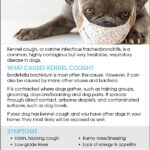Why Is My Dog’s Poop Yellow
The Strange Case of Yellow Dog Poop: Causes, Treatment, and Prevention
As a responsible dog owner, you know that poop is part of the package deal. You pick it up, dispose of it properly, and move on with your day. But what happens when your dog’s poop suddenly turns yellow? Is it something to worry about? Should you change their diet or take them to the vet? In this article, we will explore the possible reasons for yellow dog poop, how to address them, and how to prevent them from happening again.
What is yellow dog poop?
Yellow dog poop can refer to different shades and consistencies of feces that have a predominant yellow hue. Depending on the cause, it may be accompanied by other symptoms such as diarrhea, vomiting, lethargy, loss of appetite, or dehydration. It is not a normal color for healthy dog poop and can indicate various underlying health issues.
What causes yellow dog poop?
There are several potential causes for yellow dog poop, ranging from minor dietary changes to serious medical conditions. Here are some of the most common ones:
1. Diet-related issues: If your dog eats too much fat or protein (especially red meat), their digestive system may have trouble breaking down the nutrients properly. This can lead to yellowish stool with a greasy texture. Other food items that can cause yellow poop include dairy products, grains (especially corn), artificial colors or flavors, and table scraps.
2. Liver problems: The liver is responsible for producing bile acids that help digest fats in the food. If there is an issue with the liver’s function (such as inflammation, infection, or cancer), the bile may not be processed correctly and end up in the stool. This can result in pale or yellowish feces that also smell bad.
3. Pancreatic issues: The pancreas produces enzymes that aid in digestion and regulate blood sugar levels. If there is a problem with the pancreas (such as pancreatitis, tumors, or cystic fibrosis), the enzymes may leak into the intestines and cause yellow diarrhea.
4. Intestinal infections: Dogs can pick up various viruses, bacteria, or parasites from contaminated food, water, soil, or feces. These pathogens can irritate the intestinal lining and trigger diarrhea that may be yellow in color. Some common culprits include parvovirus, giardia, salmonella, campylobacter, and e.coli.
5. Medications or supplements: Certain drugs or supplements can affect the color and consistency of dog poop. For example, antibiotics can kill off beneficial gut bacteria and lead to yellow diarrhea; iron supplements can turn stool black or tarry; and antacids can make it lighter or chalky.
How to treat yellow dog poop?
The treatment for yellow dog poop depends on the underlying cause. If it is a minor issue related to diet or medication, you may need to adjust your dog’s intake and monitor their stool for improvement. Here are some general tips:
1. Switch to a bland diet: If your dog has been eating rich or spicy food that upset their stomach, you can try giving them plain boiled chicken or rice for a few days until their digestion settles down. Avoid giving them treats or scraps during this time.
2. Increase fiber intake: Adding more fiber to your dog’s diet can help regulate their bowel movements and absorb excess bile. You can do this by adding canned pumpkin (not pie filling) or psyllium husk to their meals.
3. Hydrate your dog: Make sure your dog has access to clean water at all times and encourage them to drink more if they have diarrhea. You may also offer them low-sodium chicken broth or electrolyte solution (such as Pedialyte) to replenish lost fluids and minerals.
4. Use probiotics: Probiotics are beneficial bacteria that can help restore the balance in your dog’s gut and improve their overall health. You can give your dog a probiotic supplement or feed them plain yogurt (with live cultures) as a treat.
5. Consult with your vet: If your dog’s yellow poop persists for more than a day or is accompanied by other symptoms, you should take them to the vet for a thorough examination. Your vet may perform blood tests, fecal exams, ultrasound, or other diagnostic procedures to determine the cause and prescribe appropriate treatment.
How to prevent yellow dog poop?
Preventing yellow dog poop involves several aspects of your dog’s lifestyle and care. Here are some tips:
1. Provide a balanced diet: Make sure your dog gets enough protein, fat, carbohydrates, vitamins, and minerals from their food. Choose high-quality brands that list real meat as the first ingredient and avoid filler ingredients such as corn, soy, or wheat.
2. Feed in moderation: Avoid overfeeding your dog or giving them too many treats or table scraps. Stick to a regular feeding schedule and portion size that matches their age, size, and activity level.
3. Limit exposure to toxins: Keep your dog away from hazardous chemicals such as cleaning products, pesticides, antifreeze, or human medications. Store these items out of reach or use pet-safe alternatives.
4. Exercise regularly: Regular exercise can improve your dog’s digestion, metabolism, immune system, and mental health. Take them for walks, play fetch, or engage in other physical activities that suit their breed and personality.
5. Practice good hygiene: Wash your hands before and after handling your dog’s food or waste; clean their bowls and toys regularly; groom them regularly to prevent matting or skin infections; and pick up their poop promptly and dispose of it properly.
In conclusion, yellow dog poop is not something to ignore or dismiss as a harmless quirk. It can indicate various health issues that require attention and treatment. By knowing the possible causes, treatments, and prevention measures, you can be a better advocate for your dog’s well-being and enjoy a healthy relationship with them. Just don’t expect their poop to turn into gold.



